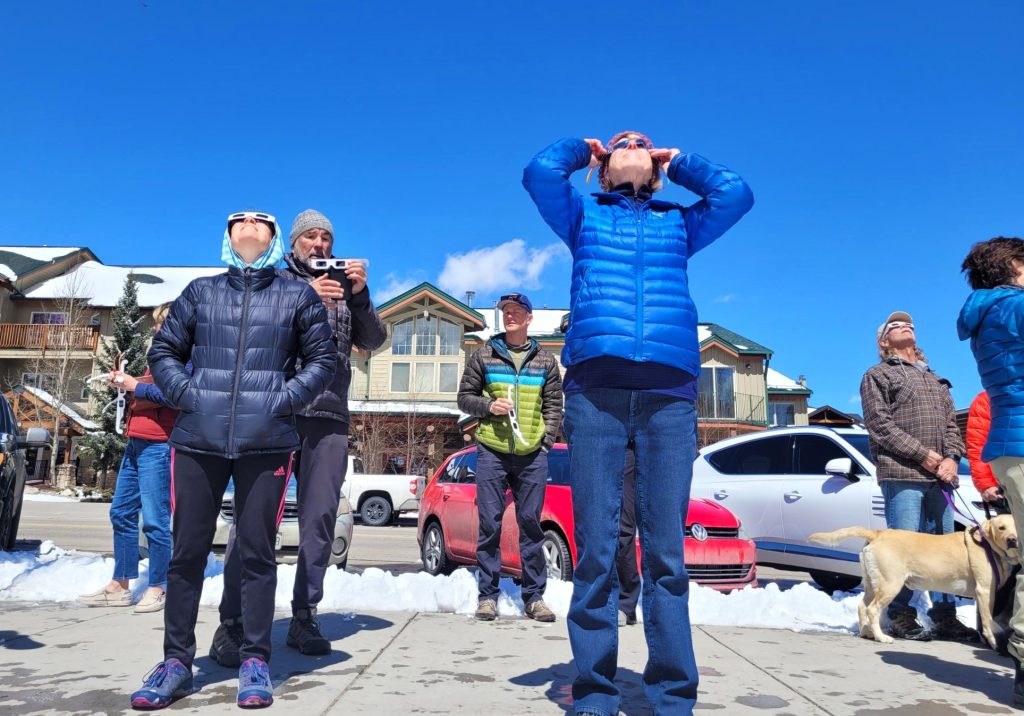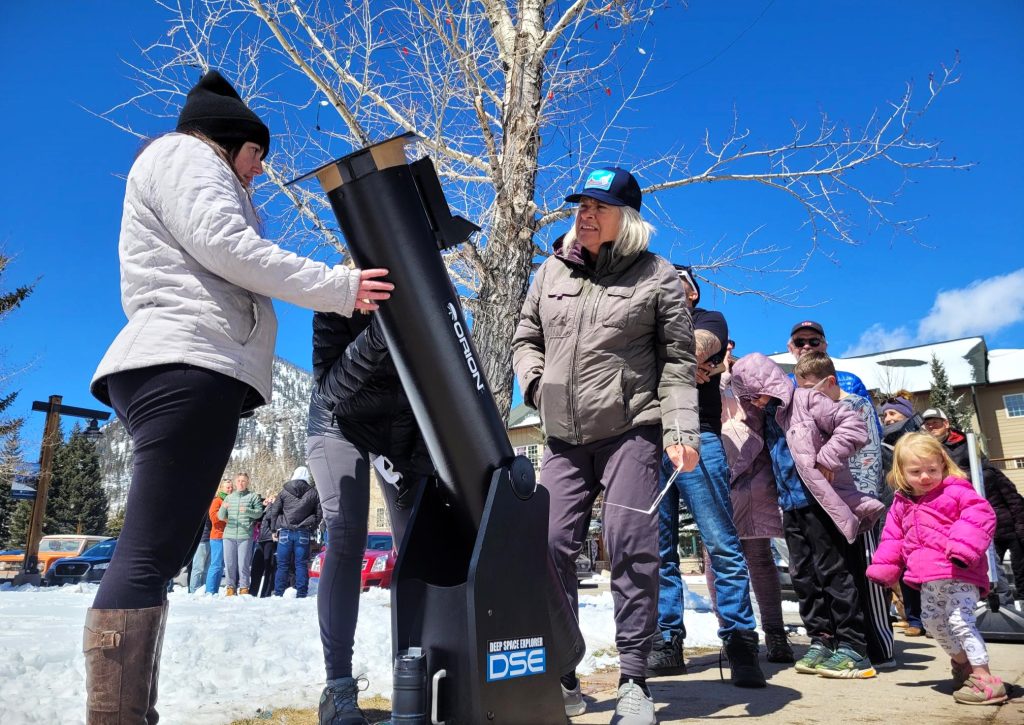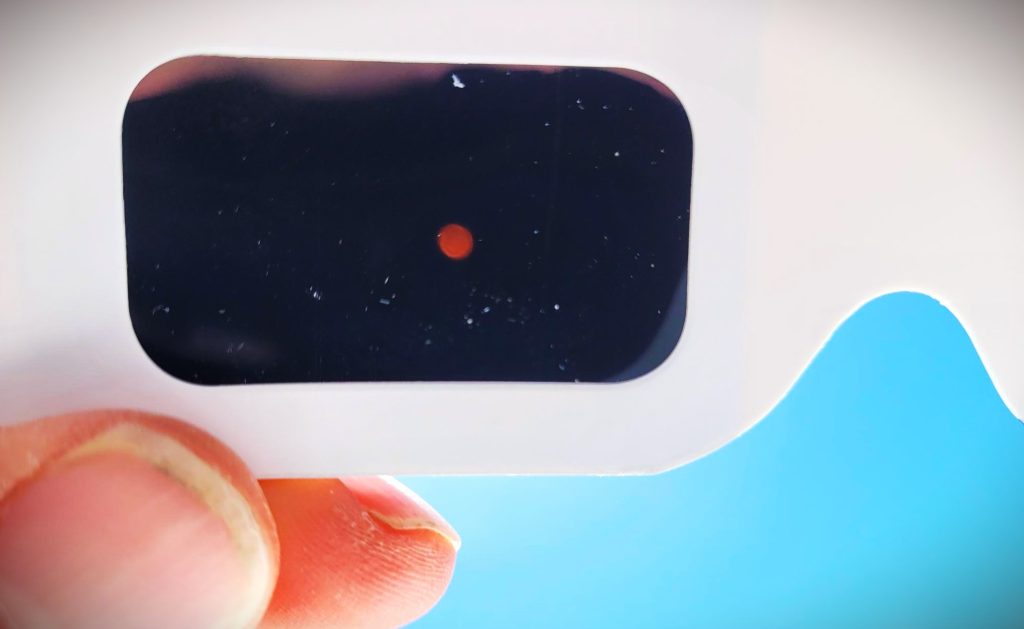There is only one soundtrack for a solar eclipse party.
“’Total Eclipse of the Heart,’” says Alyssa Hibben of Keystone. “On repeat.”
Grooving to Bonnie Tyler kept Hibben warm today at Frisco Historic Park, where she and her two children joined more than 60 other people, all bundled up beneath a chilly, clear sky for a glimpse of the solar eclipse.
“When I was a kid in the ‘80s, my whole school shut down and we went out in the field and we all watched it together,” Hibben says. “It was the coolest thing ever. I’m re-living my best eclipse life today.”
Fine-tuning a black telescope with a digital handset was David Wagner of AstroMark, a local astronomy outfit.
“It’s a fairly amateur Celestron 130 Newtonian reflector,” he says and chuckles when my eyes glaze over, proving I’ve got no clue what he’s talking about. “It’s what got me into sky viewing.”



For more than an hour people patiently waited for their turn at the telescope, where Wagner graciously gave advice that was far beyond amateur.
Others huddled in small groups with eclipse glasses, pointing and laughing, and reminding children never to look at the sun without the glasses.
The eclipse here in Summit County was not total – only 64-percent at its peak – but the excitement was.
“You can imagine what it’s like and live through it vicariously,” Wagner says. “In some parts of the country (it) is this amazing event, where the sky turns black for several minutes, and day turns into night.”
Handing out eclipse glasses and educating sun-gazers on the Colorado Dark Sky movement was Jeanine Cavetto.
“This eclipse is a cosmic event, and we love that,” she says. “We look up into the sky and see the stars and the comets, and that’s why we live here. We want to see the stars as part of the mountains, as part of our natural world.”
Town of Breckenridge recently adopted new Dark Sky laws. Frisco is interested in similar laws, where certain lights are banned, and new construction must abide by dark-sky rules.
The eclipse itself lasted no more than thirty minutes. Long before the sun returned in full force, children were already playing in the snow, and adults were wandering back to their cars, heading off to work or chores or lunch.
But Wagner, with AstroMark, remained at the park, peering through his Celestron 130. He is already counting down to the next one.
“The very next total eclipse in the U.S. is going to be total in Denver, and that’s exciting for us in Summit County,” he says. “Unfortunately for some of us that are getting on in the years, we might not be here for it. That’s in 20 more years: August of 2044.”
